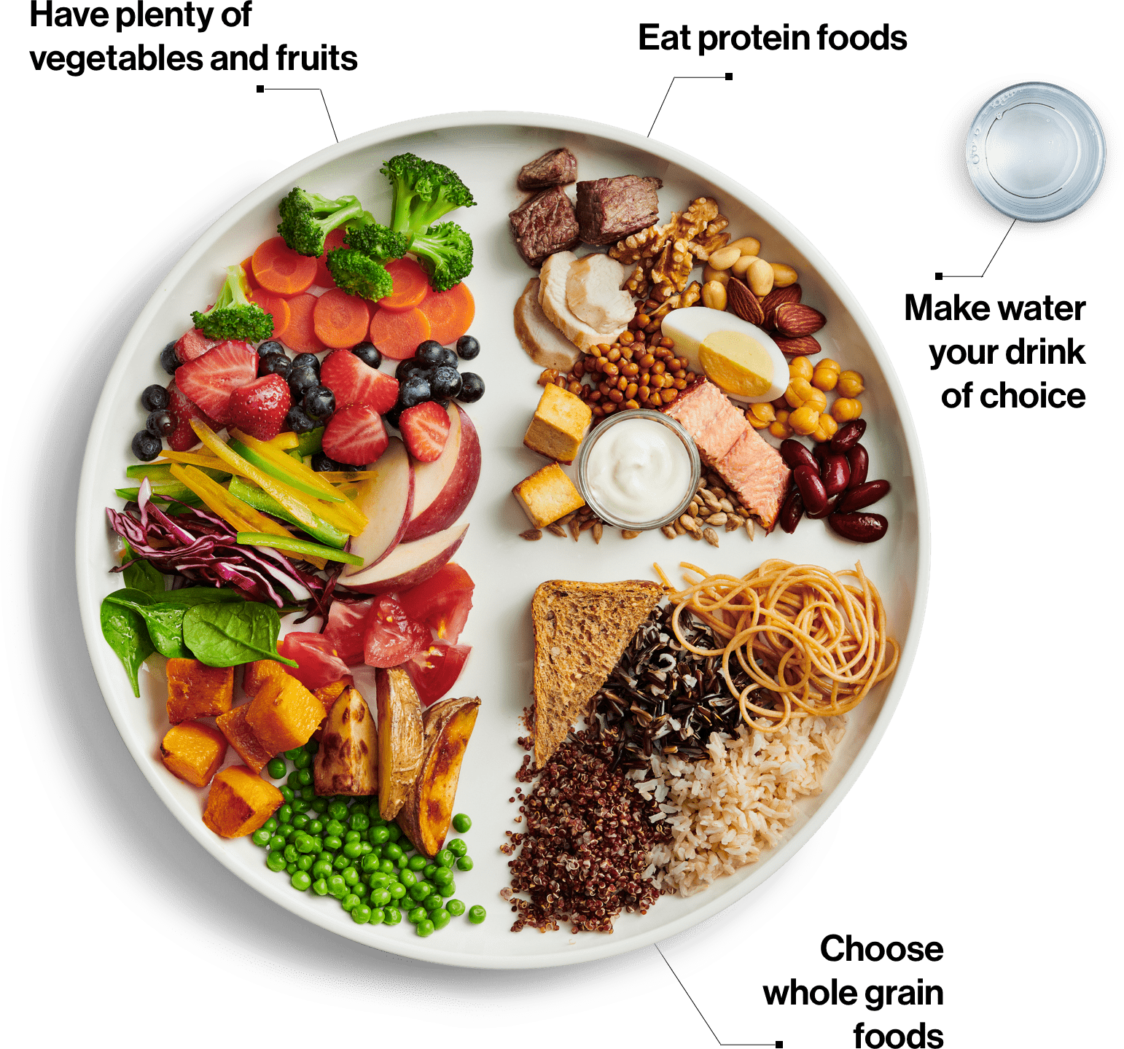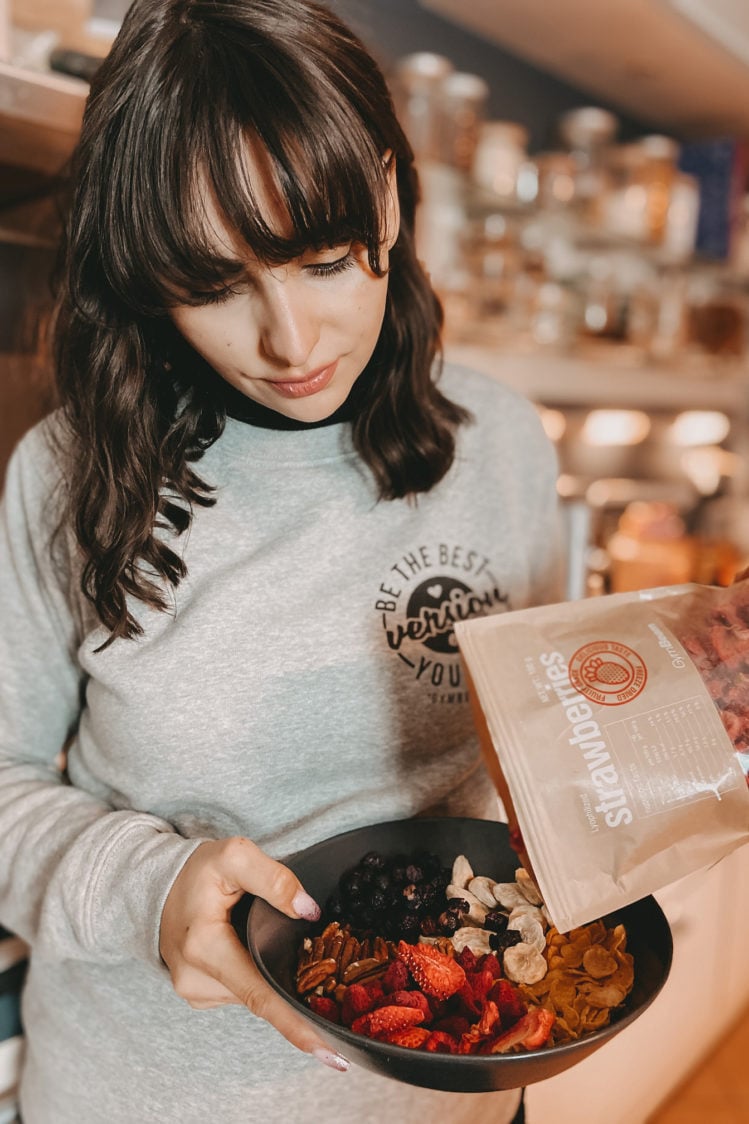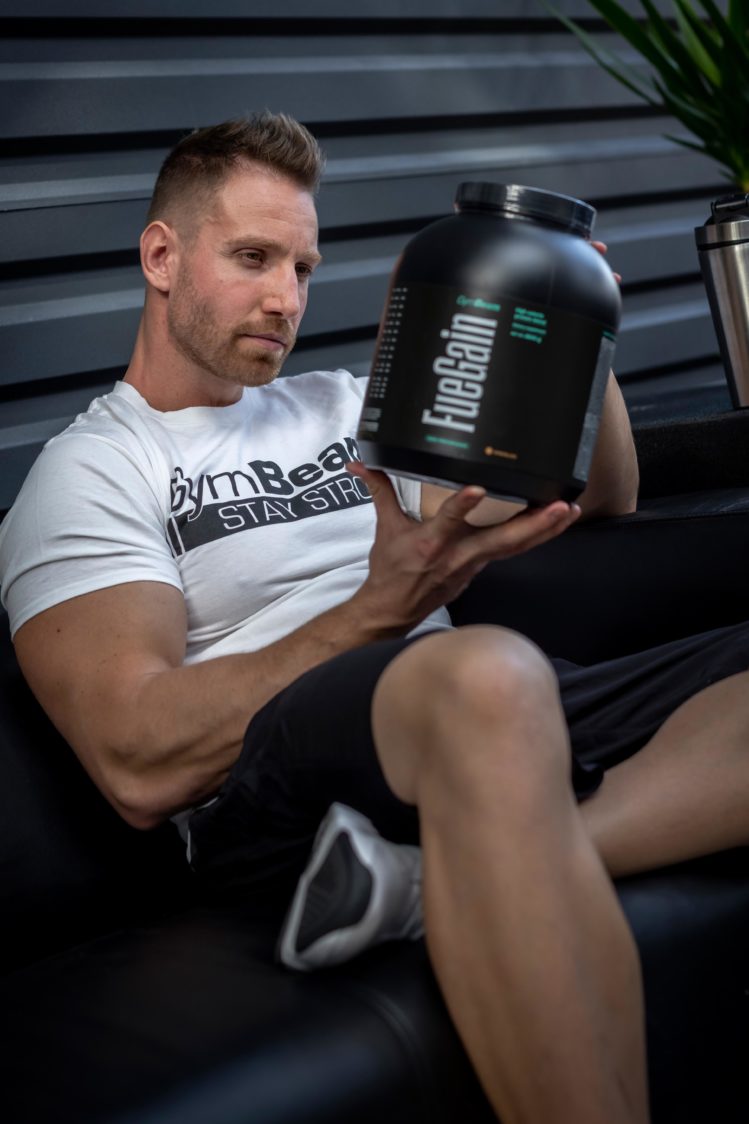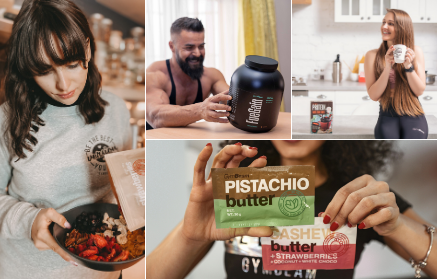Table of Contents
Are you one of those people who can eat from morning till night and still not gain weight, no matter how hard they try? Well, you’re in the right place because we’re going to show a few ways to gain weight healthily. Although most people tend to have the opposite problem and believe that they may be gaining weight just from the air they breathe, there are others among us who lament the rapid metabolism and burning of energy at the tremendous speed of a nuclear reaction. The question then arises whether there are ways that can help them gain weight?
Of course, you just have to understand the basic patterns of energy balance and start eating more calories. But that doesn’t mean you’re going to attack fast food, you’re going to have 10,000 kcal challenges every day in conjunction with your favourite fitness patterns, and you’re going to have ice cream tubs and paper pizza boxes piling up at home. It can be done healthier, more efficiently and without any unnecessary increase in fat.
Although there are more people in the modern developed world who are overweight or obese, the problem with being underweight resulting from a lack of energy intake remains a problem too. This may be linked to inadequate micronutrient intake and a number of health problems, including weakened immune systems, impaired reproductive function, hair loss, dry skin or reduced bone density and increased bone breakage. [1-7]
These problems are largely more visible in women who try to achieve a perfect physique in line with a drastically limited energy intake and excessive exercise. As a result, this leads not only to the loss of menstruation and fertility, but also to the emergence of a number of other health problems. Men can have almost the same difficulties, except menstruation, of course. In addition, the combination of excessive sports load and insufficient energy intake leads to a disturbance in hormonal balance and a decrease in testosterone levels in the body. [8–10]
How to remedy the situation?
To increase energy intake and through a healthy diet receive as many calories and micronutrients as the body actually needs, and give it time to recuperate. However, these are somewhat more serious consequences of chasing the perfect physique, which unfortunately are no exception.

Why does one gain weight from the air they breathe and others cannot gain weight, no matter how hard they try
Look for the answer in the differences in energy output between two people. Karl and John are identical twins. They’re both 30 years old, 180 cm tall (6 feet), 75 kilograms (165 lbs).
- Karl has a sedentary job and goes jogging three times a week in his spare time.
- John works in the forest and has a very manually demanding job. After work, he undertakes sport every day, and alternates the gym with running and cycling.
When the two brothers meet, Karl complains to John that he has to make sure he doesn’t gain too much weight. John, on the other hand, says that he would like to gain weight, but that he simply can’t get eating any more food. They complain to each other and agree that they could use a metabolism exchange. But would that help?
Well, it wouldn’t help because it’s not a superfast or slowed-down metabolism, but the energy demands of their different lives. John can eat up to 2,000 –3,000 more kcal per day than Karl and will maintain his weight. If you want to read more about energy output, read our article What Is the Most Important Factor in Weight Loss?
Let’s take a look at how to gain weight healthily and get a little closer to what it actually means to eat more. You don’t want to put on too much fat, do you?

1. Eat as much calories as your body really needs for healthy gain
Setting the correct energy intake starts with a well-put-together menu. To gain weight, you need to eat a little more energy through a good diet than you need.
- For a slower gain in body weight, add about 10% to your energy intake beyond your maintenance mode, where you maintain a stable body weight. In terms of calories, for most people it is roughly between 200-300 extra calories per day.
- To gain weight more quickly, add about 10 -20% to your energy intake beyond your maintenance mode, where you maintain a stable body weight. In terms of calories, for most people it is roughly between 200-700 extra calories per day. In the case of a higher calorie intake, you must also expect to gain more fat.
- For gaining weight with as little fat tissue as possible, you can increase intake roughly by an extra 250 kcal each day. [11-12]
If you have tried many diets in the past, it is possible that your body has not yet recovered from them, and you may have a ‘slow metabolism’ in the form of adaptive thermogenesis. What to look for behind this term?
Adaptive thermogenesis is responsible for a greater reduction in energy output than you might expect and calculate based on weight loss. Such a deviation may be 10-15 % from the calculated assumption or approximately 50-500 kcal. That is why in this case you should bounce back from an increase in caloric intake based on your current intake, and not from the value from the macronutrient calculator. [13–16]
You can calculate the indicative energy intake that you should approach to gain weight using our online macronutrient calculator, which also takes into account your training regimen. If you want to read more about the correct energy intake, read our article How to Calculate Energy and Macronutrient Intake for Weight Loss or Muscle Gain?
How much energy and macronutrients do you need?
Weightlifting in gym, circuit training in gym, crossfit, bodyweight training, street workout
Hockey, football, volleyball, basketball, floorbal, futsal, tennis, squash, table tennis
TRX, circuit training, body pump, aerobic and other classes led by an instructo’
Running, swimming, cycling, rowing
I lift weights
Weightlifting in gym, circuit training in gym, crossfit, bodyweight training, street workout
I play team or racquet sports
Hockey, football, volleyball, basketball, floorbal, futsal, tennis, squash, table tennis
I do demanding group trainings
TRX, circuit training, body pump, aerobic and other classes led by an instructor
I do endurance sports
Running, swimming, cycling, rowing
2. Put together a healthy diet for weight gain
The basics of a rational healthy diet always apply, and doubly so when gaining weight. The human body is not an internal combustion engine and therefore food cannot only be seen as a source of energy. Through diet, we need to absorb sufficient amounts of all vitamins, minerals, trace elements and other bioactive substances such as antioxidants. It’s the only way to give the body everything it needs.
A healthy menu will help you build a healthy diet. If you need to increase the amount of energy in your diet, it may simply be enough to reduce the amount of vegetables at the expense of carbohydrates or healthy fats depending on your goals. It may also help if you focus first on eating proteins, carbohydrates, and finally reach for fruits or vegetables. But remember that you should still accept at least 400 grams of vegetables and 200 grams of fruit per day.
And if have it clear with foods, you can add fragrant spices, fresh herbs, and overall, you literally salivate, and thus it is likely that you will eat more, again increasing the energy intake leading to weight gain. And don’t forget fat, which is a carrier of taste and makes fatty cheese or cream sauces or creamy soups taste so delicious. So make sure you prepare your meal, take advantage of all your favourite smells and flavours, and start using your sense of smell and vision to your advantage. [17]
- Protein sources: meat, fish, seafood, milk, dairy products and cheese, eggs, legumes (peas, beans, all kinds of lentils, chickpeas, edamame), pseudo cereals (buckwheat, amaranth, quinoa), tofu, tempeh, nuts, seeds, vegetable meat substitutes, delicate yeast, whey protein, plant-based protein, protein bars.
- Sources of fat: nuts and seeds, oils, olives, avocados, butter and other sources of fat that are a natural part of animal proteins.
- Carbohydrate sources: whole grains and cereals (oats, flour, rice, pasta, bread and pastries), pseudo-cereals, potatoes and sweet potatoes, legumes, fruits and vegetables.
- If you are interested in what a healthy diet is and how to learn to eat healthily, read our article What is a Healthy Diet and How to Learn to Eat Healthily?


3. Eat larger portions and use larger plates
People generally tend to eat more food from a larger plate, and therefore more energy compared to a smaller plate. Try to use this strategy and serve yourself larger sized main daily meals. That 100 grams of cooked rice in addition for dinner and lunch will give you around 240 extra calories, which is not that small. [18-19]
4. Ensure you have enough protein
Proteins are among the most important nutrients, as they have the ability to stimulate the production of muscle proteins (MPS– muscle protein synthesis), and can thus help with their enlargement and weight gain of active body mass. [21]
- If you do not do any sport but live a more active life, your protein intake could fall within the range of 1.2 – 1.4 grams per kilogram of body weight. [20]
- If you undertake sport, your protein intake should be between 1.4 and 2.2 grams per kilogram body weight. The upper intake limits apply especially to strength-training athletes. [21-22]
Our online macronutrient calculator will again assist you to calculate optimal protein intake, which you can find above. When you are unable to cover your optimal daily protein intake through a solid diet, a quality whey or vegan vegetable protein can help. If you are also interested in other sources of protein, read our article 20 Foods With Which you Can Easily Add Protein to Your Diet.
5. Eat as often as you like and create your own personal system with your food
The golden rule of healthy eating is three larger meals a day adequately complemented with snacks. However, if it suits you to eat fewer larger meals during the day, and you do not feel ready to slump on the couch after eating a large meal and can “eat some of your calories” in this way, then everything is in perfect order. Each of us likes something a little different.
But you should not get into a situation where you eat almost nothing during the day and in the evening you make a headlong attack on the refrigerator and pantry together, where you eat everything you can get your hands on. That doesn’t have much to do with a healthy digestive system. Be aware that the more opportunities you have during the day to eat, the more calories you will consume.
It is advisable to have fast healthy snacks prepared on standby to suitably replenish calories. In this way, your favourite fruit with yogurt, protein bar, a handful of nuts or dried fruit or a teaspoon of peanut butter can serve you well.
You might be interested in these products:
6. Undertake sport and focus on pre- and post-training nutrition

When you go for a run or a workout, you burn energy that needs to be replaced. This may not be such a problem because physical activity generally has a positive effect on appetite. This again gives you the chance to take in more calories in your next meal after sport. The fact remains, however, that you can detect “appetite awakening” during regular sport, and not once in a while. [23-25]
Through sporting activity on an hourly basis you can burn around 200 – 800 kcal depending on the specific sport, its intensity and your body weight. These calories burned should then be compensated by an increased energy intake.
- Have a small snack about an hour before exercise, perhaps in the form of a piece of fruit and yoghurt, granola with milk, or protein bar so that you feel comfortable and do not feel heavy during training. By supplying your body with energy for performance you can maybe beat your personal record.
- On the contrary, after the exercise, there is an ideal opportunity to quickly start the regeneration processes and start supplementing the “burnt” glycogen in muscle. Quickly digestible whey protein will help you to regenerate damaged muscles, and carbohydrates can be supplemented with banana or maltodextrin or some other fast energy sources. You can also use a high-quality gainer, which contains an adequate dose of protein and carbohydrates.
Read more about calories burned through sporting activity in our article How to Lose a Kilogram of Fat and How Much Energy is Actually Hidden In It?
7. Always have a snack at hand
There’s nothing more unpleasant than when you get hungry, and you don’t have anything suitable at hand. Suddenly, you are in a worse mood, feel more irritated and eat everything you can get your hands on. If you know you need two or three snacks during the day, adjust your diet and prepare them as you prepare your meal for the next day. A supply of protein bars in the office or pantry can also save you from hunger.
What snacks are good for gaining weight?
- Pastry snacks. A piece of quality whole-wheat pastry (baguette, Kaiser roll or 2 smaller slices of bread) smeared with cream cheese with two slices of ham, Edam and a hard-boiled egg with a favourite vegetable in a snack box is a quick and nutritious snack that can average about 350 kcal.
- Snack jar. Just take an empty peanut butter jar and layer full-fat yogurt, Skyr or Greek yogurt, chia seeds, and finally top with your favourite fresh or lyophilized fruit and a spoonful of nut butter. Such a snack can average around 550 kcal, depending on the specific fat of the yogurt and the amount of nut butter.
- You can also try fermented overnight flakes, which are a complex, easily digestible snack. These on average contain about 279 kcal per serving and you can find the recipe in the article Fitness Recipe: Fermented Overnight Flakes with Nuts and Fruit.
- Cottage cheese chia pudding is handy to have prepared in the fridge in case you get a craving. On average, it contains about 214 kcal in one portion, and instructions for preparing it can be found in the article Fitness recipe: Cottage Cheese Chia Pudding with Fruit.
- Any fruit contains a range of micronutrients, energy and fibre essential for healthy digestion. When you take advantage of fruit and protein bars or biscuits, you have a quality snack at any time. One large banana and MoiMüv Protein Cookie will provide something like 400 kcal.
- It’s nice to have your favourite nut butter in the pantry at home and at work just in case. An average teaspoon (15 g) contains about 90 kcal in the form of quality fats, carbohydrates and proteins.
- Even nuts contain healthy fats and provide the body with quality energy. In one handful (30 g = +- 10 pieces) of cashew nuts your intake is approximately 170 kcal.
- Protein bars and cookies are a healthy snack in case you start to be haunted by sweet cravings, want to replenish quality proteins or just enjoy something sweet tasting at any time of the day. On average, one protein bar produces approximately 200 kcal and a protein cookie roughly 300 kcal.
- Energy bars & Flapjacks are a simple snack that replenishes energy at any time of the day. Depending on their weight, they average around 200-400 kcal.
- Dried meat will provide a reliable portion of protein for your muscles in various flavours. On average, one 50g pack contains around 160 kcal.
- Dark chocolate is a source of a range of antioxidants and a dose of energy. One average 100g serving of 90% dark chocolate gives you roughly 590 kcal. Furthermore, thanks to Fitcheat Protein Chocolate this can easily increase your caloric intake by 465 – 513 kcal per pack.
- If you want to read more on snack tips, read our article What Should a Balanced Snack Contain and How to Healthily Replace Caloric Snacks?

8. Prepare nutritional and more energy-efficient meals
Sneak more calories into your diet without feeling in any way that you have to eat piles of food. Just follow the principles of a healthy diet in relation to your needs and take inspiration from the following tips.

How to create more nutritional and energy-efficient foods for gaining weight?
- Prepare the oatmeal (60g oats) from whole milk (270ml), add a protein scoop (30g), a spoonful of nut butter (30g), sweet topping or maple syrup (15ml), 2 squares of dark chocolate (8g), a few pieces of fruit (100g) and you have a nutritionally and energy-charged meal in the form of breakfast with an average content of 825 kcal.
- Add avocado wherever you want to enrich your salad bowls.
- Cold pressed oils find their uses in cold meals. They can enrich and enhance the taste of pasta salad or popular carbohydrate or vegetable side dishes.
- Use coconut milk for recipes from Asian or Indian cuisine.
- Prepare your favourite sauce or dip to eat. For example, you can try a dip of whole white yogurt, quality cold-pressed oil, Parmesan, salt, pepper and herbs to taste. For your steak, try a homemade pepper sauce, the basis of which consists of cream and butter.
In general, try to find nutrient-dense foods that are rich in healthy fats. For example, replace cod or trout with fattier fish like salmon. At the same time, instead of potatoes and sweet potatoes, reach for rice, pasta and other whole grain cereals.
9. Eat fast
Studies show that people who eat fast have a higher body weight compared to slow eaters. It is also because it takes a while for a whole cascade of events to take place in your body, which tells you that you are already feeling saturated. Therefore, it is recommended to eat more slowly when losing weight. You don’t have to eat your meal as if in a race, for starters it might be enough not to examine and dissect every bite. [26-27]
10. Use the power of food supplements and liquid nutrition
If you don’t want to feel full and almost burst all day, just to eat your calories through a solid diet, you can reach for quality liquid calories. Why? Unsurprisingly, liquid calories have a much smaller effect on the feeling of fullness compared to the same amount of calories in the form of solid food. And that’s when you can use them to your advantage. [28–29]
How to increase energy intake through food supplements and liquid nutrition?

- Smoothies will help you increase your caloric intake in a million different ways. Make sure the smoothie contains proteins, healthy fats, and not just carbohydrates from mixed fruit. You can increase protein content by adding Greek or white yogurt or protein. Healthy fats can be found in chia seeds, avocados or walnut butter. A smoothie made of two bananas, one pear, scoops of protein, 20g chia seeds, 20g oatmeal flour, 15 g peanut butter, 200ml of whole milk and water averages a respectable 750 calories.
- High-quality gainers in the form of all-in-one blends are suitable at any time of the day for increasing calorie intake, replenishment of energy, proteins and a range of micronutrients. For athletes, gainers can be an interesting choice to replace “expended energy.” High-quality gainers can also serve as a last resort when you miss a larger daily meal. Gainers in a single serving generally contain something like 350-450 kcal. The premium all-in-one blend of FueGain contains 446 kcal per serving.
- Proteins are a good choice for damaged muscle regeneration from training and replenishing proteins at any time of the day. Together with fruit, they can be an occasional suitable snack. Thus, the serving of Just Whey protein and a banana is on average less than 200 kcal.
- Zinc deficiency can lead to a decrease in appetite. Therefore, focus on its sufficient intake in the form of suitable foods or dietary supplements. Its rich sources include oats, beef, legumes, pumpkin seeds, nuts or oysters. [30–31]
- Do not drink water before meals. Studies suggest that you can eat less food this way, resulting in a reduction in energy intake. [32]
What should you remember?
Energy balance is the basis for weight loss and weight gain. In this case, you simply need to receive more calories than you burn. It’s no big deal, just start thinking of food as your friend and not your enemy. We can call the sustainable pace of gaining about 0.5 kilograms per week, which means something like an extra 550 kcal in your diet every day. In the case you want to minimize the increase in fat tissue as much as possible, you should stick to about 250 extra kcal every day. And most importantly, give it time.
Check your progress once every two weeks on the same day and under the same conditions. If the weight number and your body measurements are the same, simply add at least another 250 kcal to the menu. Don’t forget the sport that helps you stay fit and even increases your appetite. In terms of muscle building and healthy weight gain, it is good to do strength training about 2-3 times a week. This will give the muscles the necessary impulse to grow and strengthen.
When you feel you can eat anything you can get your hands on and not gain an ounce of weight, try sneaking more energy and nutritionally valuable meals and foods into your diet. Focus on sufficient energy and protein intake in as many daily meals as you like. High-quality protein, gainer or smoothies can help to increase energy intake in a million different ways.
What is the most important thing in healthy weight gain according to you? Share your experience, advice and tips for successful weight gain in the comments. If you liked the article, promote it by sharing so that your friends can learn how to manage healthy weight gain.
[1] Leandra Abarca-Gómez a kolektiv autorů. – Worldwide trends in body-mass index, underweight, overweight, and obesity from 1975 to 2016: A pooled analysis of 2416 population-based measurement studies in 128·9 million children, adolescents, and adults. – https://doi.org/10.1016/S0140-6736(17)32129-3
[2] Cheryl D. Fryar, M.S.P.H., and Cynthia L. Ogden, Ph.D., – Prevalence of Underweight Among Adults Aged 20 Years and Over: United States, 1960–1962 Through 2007–2010 – https://www.cdc.gov/nchs/data/hestat/underweight_adult_07_10/underweight_adult_07_10.htm
[3] WHO – Obesity and overweight. – https://www.who.int/news-room/fact-sheets/detail/obesity-and-overweight
[4] Dobner, J., & Kaser, S. – Body mass index and the risk of infection—From underweight to obesity. – https://doi.org/10.1016/j.cmi.2017.02.013
[5] Boutari, C., Pappas, P. D., Mintziori, G., Nigdelis, M. P., Athanasiadis, L., Goulis, D. G., & Mantzoros, C. S. – The effect of underweight on female and male reproduction. – https://doi.org/10.1016/j.metabol.2020.154229
[6] Lim, J., & Park, H. S. – Relationship between underweight, bone mineral density and skeletal muscle index in premenopausal Korean women. – https://doi.org/10.1111/ijcp.12801
[7] Papageorgiou, M., Dolan, E., Elliott-Sale, K. J., & Sale, C. – Reduced energy availability: Implications for bone health in physically active populations. – https://doi.org/10.1007/s00394-017-1498-8
[8] Knuth, U. A., Hull, M. G. R., & Jacobs, H. S. – Amenorrhoea and Loss of Weight. – https://doi.org/10.1111/j.1471-0528.1977.tb12499.x
[9] Loucks, A. B. – Energy availability and infertility. – https://doi.org/10.1097/MED.0b013e3282f1cb6a
[10] Dipla, K., Kraemer, R. R., Constantini, N. W., & Hackney, A. C. – Relative energy deficiency in sports (RED-S): Elucidation of endocrine changes affecting the health of males and females. – https://doi.org/10.1007/s42000-020-00214-w
[11] Alan A. Aragon, Schoenfeld, B. J., Wildman, R., Kleiner, S., VanDusseldorp, T., Taylor, L., Earnest, C. P., Arciero, P. J., Wilborn, C., Kalman, D. S., Stout, J. R., Willoughby, D. S., Campbell, B., Arent, S. M., Bannock, L., Smith-Ryan, A. E., & Antonio, J. – International society of sports nutrition position stand: Diets and body composition – – https://doi.org/10.1186/s12970-017-0174-y
[12] Alan A. Aragon, & Schoenfeld, B. J. – Magnitude and Composition of the Energy Surplus for Maximizing Muscle Hypertrophy: Implications for Bodybuilding and Physique Athletes – – https://doi.org/10.1519/SSC.0000000000000539
[13] Rosenbaum, M., & Leibel, R. L. – Adaptive thermogenesis in humans. – – https://doi.org/10.1038/ijo.2010.184
[14] Hall, K. D. – Modeling metabolic adaptations and energy regulation in humans. – – https://doi.org/10.1146/annurev-nutr-071811-150705
[15] Leibel, R. L., Rosenbaum, M., & Hirsch, J. – Changes in Energy Expenditure Resulting from Altered Body Weight. – – https://doi.org/10.1056/NEJM199503093321001
[16] Fothergill, E., Guo, J., Howard, L., Kerns, J. C., Knuth, N. D., Brychta, R., Chen, K. Y., Skarulis, M. C., Walter, M., Walter, P. J., & Hall, K. D. –Persistent metabolic adaptation 6 years after The Biggest Loser competition. – – https://doi.org/10.1002/oby.21538
[17] Sørensen, L. B., Møller, P., Flint, A., Martens, M., & Raben, A. – Effect of sensory perception of foods on appetite and food intake: A review of studies on humans. –– https://doi.org/10.1038/sj.ijo.0802391
[18] Benton, D. – Portion size: What we know and what we need to know. – https://doi.org/10.1080/10408398.2012.679980
[19] Rolls, B. J., Morris, E. L., & Roe, L. S. – Portion size of food affects energy intake in normal-weight and overweight men and women. – https://doi.org/10.1093/ajcn/76.6.1207
[20] Bernaciková, M., Masarykova univerzita, & Fakulta sportovních studií. – Regenerace a výživa ve sportu (1. vyd.)
[21] Jäger, R., Kerksick, C. M., Campbell, B. I., Cribb, P. J., Wells, S. D., Skwiat, T. M., Purpura, M., Ziegenfuss, T. N., Ferrando, A. A., Arent, S. M., Smith-Ryan, A. E., Stout, J. R., Arciero, P. J., Ormsbee, M. J., Taylor, L. W., Wilborn, C. D., Kalman, D. S., Kreider, R. B., Willoughby, D. S., … Antonio, J. – International Society of Sports Nutrition Position Stand: Protein and exercise. – https://doi.org/10.1186/s12970-017-0177-8
[22] Schoenfeld, B. J., & Aragon, A. A. – How much protein can the body use in a single meal for muscle-building? Implications for daily protein distribution. – https://doi.org/10.1186/s12970-018-0215-1
[23] Blundell, J. E., Gibbons, C., Caudwell, P., Finlayson, G., & Hopkins, M. – Appetite control and energy balance: Impact of exercise. – https://doi.org/10.1111/obr.12257
[24] Blundell, John E., Caudwell, P., Gibbons, C., Hopkins, M., Naslund, E., King, N., & Finlayson, G. – Role of resting metabolic rate and energy expenditure in hunger and appetite control: A new formulation. – https://doi.org/10.1242/dmm.009837
[25] Whybrow, S., Hughes, D. A., Ritz, P., Johnstone, A. M., Horgan, G. W., King, N., Blundell, J. E., & Stubbs, R. J. – The effect of an incremental increase in exercise on appetite, eating behaviour and energy balance in lean men and women feeding ad libitum. – https://doi.org/10.1017/S0007114508968240
[26] Leong, S. L., Madden, C., Gray, A., Waters, D., & Horwath, C. – Faster self-reported speed of eating is related to higher body mass index in a nationwide survey of middle-aged women. – https://doi.org/10.1016/j.jada.2011.05.012
[27] Ohkuma, T., Hirakawa, Y., Nakamura, U., Kiyohara, Y., Kitazono, T., & Ninomiya, T. – Association between eating rate and obesity: A systematic review and meta-analysis. – https://doi.org/10.1038/ijo.2015.96
[28] DiMeglio, D. P., & Mattes, R. D. – Liquid versus solid carbohydrate: Effects on food intake and body weight. – https://doi.org/10.1038/sj.ijo.0801229
[29] Mattes, R. D., & Campbell, W. W. – Effects of food form and timing of ingestion on appetite and energy intake in lean young adults and in young adults with obesity. – https://doi.org/10.1016/j.jada.2008.11.031
[30] Suzuki, H., Asakawa, A., Li, J. B., Tsai, M., Amitani, H., Ohinata, K., Komai, M., & Inui, A. – Zinc as an appetite stimulator—The possible role of zinc in the progression of diseases such as cachexia and sarcopenia. – – https://doi.org/10.2174/2212798411103030226
[31] FoodData Central – – https://fdc.nal.usda.gov/index.html
[32] Daniels, M. C., & Popkin, B. M. – Impact of water intake on energy intake and weight status: A systematic review. – https://doi.org/10.1111/j.1753-4887.2010.00311.x


Add a comment